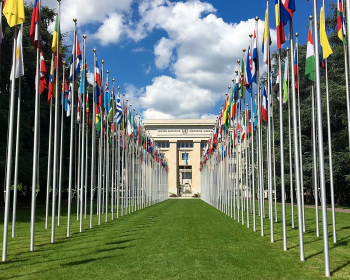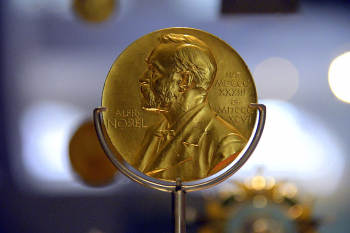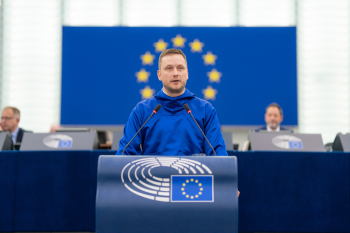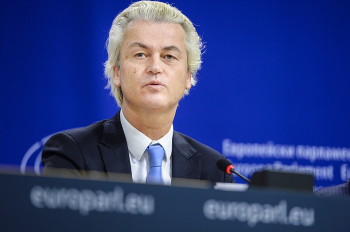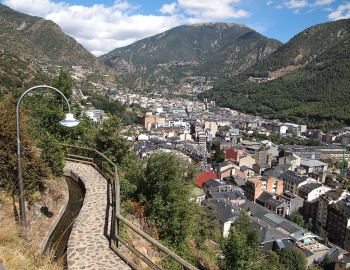
Dr Olena Derevianko is a well-known researcher in Eastern Europe, Doctor of Economics and Political Economy. The innovative model of reputation management and 3D model
Dear Olena,
You were elected the Honorary Fellow of CEDS in July 2019, and two years have passed since. Please, tell us about your scientific researches carried out during this time and what exciting events have happened in your life as a scientist?
These were two unforgettable years of cooperation. With great pleasure, I got acquainted with the scientific activity directions of CEDS. Me joining our team was very timely and natural. World democracy is facing a profound crisis. It is primarily associated with a change in the communication environment both from the point of view of new technical solutions and media and from the point of view of the logic of information exchange and the content of information messages.
The world that management bestsellers call to be reputation-centric is narcissistic, in fact. The speed of the information flow is such that most politicians do not have time, do not want, and cannot think about strategic and visionary things. Voters do not bother to control the fulfilment of election promises by their elect, at least to some extent. Political responsibility and public condemnation have become very conditional. Plus, the pandemic factor, which nomadizes/atomizes society, on the one hand, and provides interesting opportunities for the manifestation of human solidarity, on the other.
This 'new normal' is understandable for me as an expert in reputation management, a practising consultant with a clientele from business and politics. And for me, as a scientist, it is an object of close study and careful research. Firstly, from the point of view of changes in decision-making models in society at the current critical stage in the development of human civilization. Now I am working on a book devoted to these issues, and I am also preparing to publish some of its sections with my scientific view of events.
Please, tell us a little more about yourself, your biography, and the milestones of your scientific career.
I am from a dynasty of university teachers. My grandmother taught Strength of Materials; my mother taught Economics. It was a must for me to enrol to graduate school. Though, my childhood ambitions extended much. I told everyone that I was going to become the President of the Academy of Sciences of a giant Soviet Union at that time but not Ukraine separately. In fact, I was considered as the most likely candidate to become a Doctor of Sciences and a Professor. Now I am twice a Doctor (Economics and Political Economy) and a Professor, but the path turned out to be much more torturous than it was thought then, many years ago.
The collapse of the USSR and the painful formation of independence of Ukraine marked my enrolment to the university happened. The administrative-command economy was then replaced by the market economy, which opened new ways closed previously. Therefore, my first PhD viva examination did not become the start of a scientific career for me. I stayed to teach at the department, but I was engaged in management consulting for the most part. At first, it was the development of business plans made tо order, and then a clear and up-and-coming niche of reputation management emerged. And only 16 years after defending my PhD, having gained tremendous experience in managing the reputation of companies, business leaders, politicians, I came to defend my two doctoral theses. This was conscious since I do not believe in serious economic, scientific developments without practical experience in the real economy. The ivory tower is not for the social sciences. As of today, I have returned to active scientific work, a significant part of which concerns the work of the CEDs team.
The European Union is actively and lively discussing the EU expansion to the East. What is your opinion on this matter? Is this process dynamic enough, and what could be improved in this process, in your opinion?
I think this process should be viewed in the context of the general dynamics of development, which is not limited to expansion to the East. There is also Brexit with all its consequences and a multidirectional approach on many issues among the EU member states. Ukraine declared its European choice firmly and under tragic historical circumstances. But we do not have the feeling that we are awaited in the European Union as equal partners. Even if we reduce the level of corruption to the world average, and we carry out other reforms that are criteria for our Western partners and international financial institutions. This does not add Euro-optimism to the Ukrainians.
In your opinion, what is the relevance of the topic of researching corporate democracy? Why is it essential for the modern economic development of European countries?
The book I am currently working on will pay significant attention to the so-called stakeholder capitalism, and I see corporate democracy as a particular manifestation of it. It sounds great as an idea — let's harmonize all parties' interests and listen to competent associations but not to ignorant philistines, including the corporate world. However, as an economist, it is pretty clear to me that the desire for the personal enrichment of the beneficiaries of business structures is too strong to actually conduct business 'in a vegetarian way', taking into account the interests of all parties. Most states are now much weaker than international corporations and have little leverage over them. As a result, in my opinion, all this leads to a violation of the unconditional democratic right of citizens to influence the configuration of the political system. Yes, voters are busy with their affairs, do not believe in fair elections and consider themselves more the audience of a political show series than subjects of political activity. But it is not a reason for responsible politicians to raise their hands and give all the helm of state to associations. Such a simplified approach is fraught with serious cataclysms, not only in the long term but also in the medium term.
And in Eastern Europe, the problem of the effectiveness of corporate democracy has an additional dimension. Wherever significant local capital (or international capital fronted by local capital) plays an important role in the economy, there is an attempt to corporatize the country. In Ukraine, there was even a journalistic definition of 'Corporation Ukraine', the shareholders of which everyone knew by name — the former leadership of the country and the oligarchy close to them. There are very interesting studies of my colleagues in corporatocracy, which I will gladly share if necessary.
Tell us about your research plans for the near future in addition to the scientific work that you described.
In addition to political-economic research, I am now passionate about econometric models, which allow me to create a database accumulated in the National Ranking of the Quality of Corporate Reputation Management framework. This project is seven years now. I thought it at one time as an approbation of my methodology of reputation management, developed for business. During this period, a lot of interesting information has been collected, making it possible to identify the dependencies of indicators and create tools that are of practical importance for PR professionals. I believe I will publish some of these calculations over the next six months. And, of course, I do hope for the end of the pandemic, making it possible to communicate more often with colleagues offline at conferences, congresses, symposia, and in person, exchanging friendly and business visits between countries.


